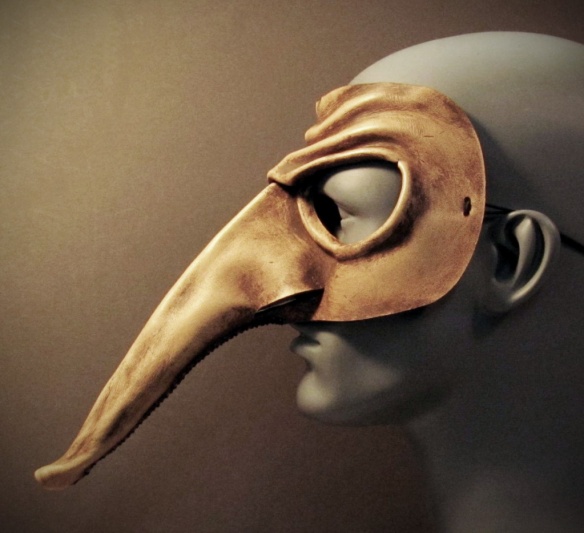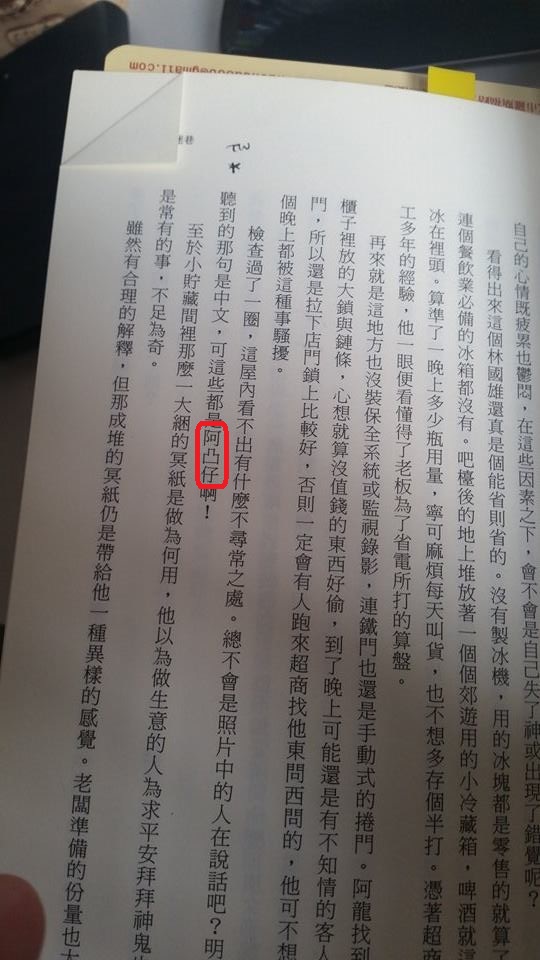 I came across the (somewhat controversial) Taiwanese phrase for (non-Asian) foreigner 「阿凸仔」 in a book I’m reading at the minute:
I came across the (somewhat controversial) Taiwanese phrase for (non-Asian) foreigner 「阿凸仔」 in a book I’m reading at the minute:

檢查過了一圈,這屋內看不出有什麼不尋常之處。總不會是照片中的人在說話吧?明明聽到的那句是中文,可這些都是阿凸仔啊!
He checked all around but couldn’t see anything out of the ordinary. It couldn’t have been the people in the photographs talking, surely? The words he’d heard had clearly been in Chinese, but they were all foreigners!
There are a lot of weird and wonderful stories about the origin of the term 「阿凸仔」, from the rather far-fetched concept that it was adopted from the Japanese pronunciation of the English “a dog” to the more common theory that it refers to the high-bridge noses of non-Asians compared to Asian people. I tend to put more stock in the latter theory.
The Taiwanese Ministry of Education dictionary uses the characters 阿啄仔 and the pronunciation as a-tok-á, which translates to “Beaky” – as in “You’ve got a beak on your face, Beaky,” or as the MOE puts it:
因為洋人的鼻子高挺,所以用「啄」(tok)來代稱洋人。
Because Westerners’ noses protrude, so 「啄」(tok) “beak” is used to refer to Westerners.
There’s also a synonym 啄鼻仔 tok-phīnn-á (beak-nose-diminutive particle), which I’ve yet to hear mentioned in conversation or see written down.
Whether you like the term or hate it, it’s something you’ll hear a lot in Taiwan – generally no harm is meant by it, but if you hear a 「死阿啄仔」 sí a-tok-á (fucking foreigner/dead beaknose) followed by a list of other expletives, it might be time to start running.
The term has even been re-appropriated by a Spanish guy called Jesus living in Taiwan, on his Youtube channel 「阿兜仔不教美語」 (This foreigner doesn’t teach American English). I would advise you all not to troll him by leaving comments on his videos asking where he teaches English… (Mwahaha).
Mask image courtesy of Tom Banwell under a Creative Commons License.

It’s Taiwanese racist term for those of European decent. Plain and simple.